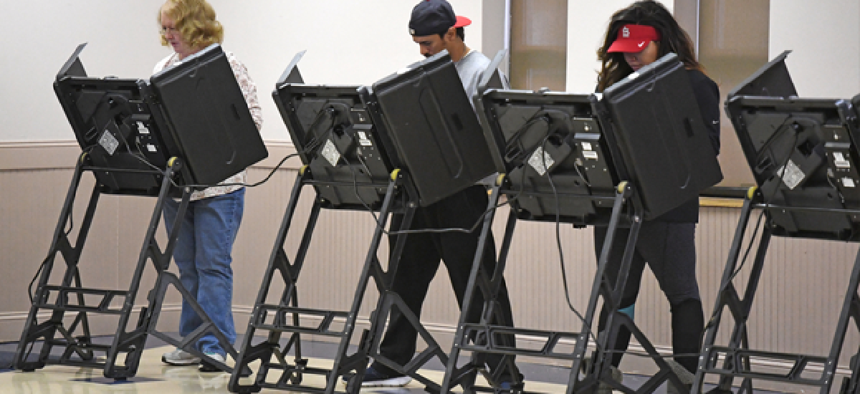Court stops Georgia from using ‘grossly outdated’ election equipment in 2020


Connecting state and local government leaders
The court also ordered the state to develop a contingency plan if its new equipment is not ready to be rolled out in time for the March 24 presidential primary.
Georgia must phase out its “unsecure, unreliable and grossly outdated” election equipment before the state’s 2020 elections, a federal judge ruled Thursday.
In her decision, U.S. District Judge Amy Totenberg denied a request by voting rights activists to conduct the rest of this year’s 386 local Georgia elections on hand-marked paper ballots.
Totenberg did, however, order the state to develop a contingency plan if its new equipment is not ready to be rolled out in time for the March 24 presidential primary. The state recently spent $107 million on new voting machines following highly publicized 2018 midterm elections in which voters said machines flipped votes and lost ballots.
“The Court does not minimize the challenges any state faces in operating a secure, reliable voting system in the current cyber era,” Totenberg wrote in her 153-page decision. “Still, the Defendants have been slow and poorly equipped in tackling the security and functionality challenges afflicting its current voting system.”
Republican Secretary of State Brad Raffensperger said last month that Georgia will buy 30,000 new voting machines and 3,500 optical scanners from Dominion Voting Systems, the second-largest election technology company in the United States.
After Thursday’s ruling, Raffensperger said that “activists and their attorneys … incessantly use scare tactics to try to undermine Georgia elections,” the Atlanta Journal Constitution reported.
For the last 17 years, Georgia has used paperless, direct-recording electronic (DRE) voting machines that election security experts have long called obsolete and easily hackable. In February, the state legislature passed a law that, among other things, authorized the purchase of new voting machines that have a paper record.
Paper backups, election security experts say, are essential for post-election audits that ensure the accuracy of elections.
Kristen Clarke, the president and executive director of the Lawyers’ Committee for Civil Rights Under Law, which represents the plaintiffs, in a statement called the decision “a major win for Georgia’s voters and a significant step forward in the fight to ensure election integrity.”
She added, “We hope that this historic decision sends a strong message to other states with similarly outdated and hackable equipment that they must take action now to modernize and update their systems in advance of the 2020 election cycle.”
As Stateline has reported, Georgia also passed legislation that, to address some of the problems, weakens the state’s exact-match law for absentee ballots, limits the time polling places can be closed before Election Day and curtails voter registration purges.
This article was first posted to Stateline, an initiative of The Pew Charitable Trusts.




